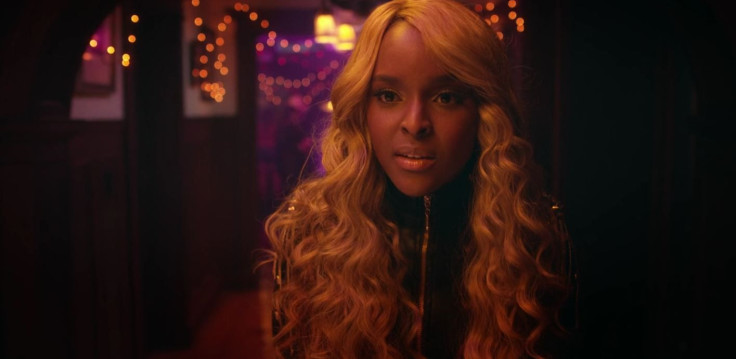Samantha White may be the character viewers remember most from the 2014 film that inspired Dear White People, a new Netflix TV series that follows a group of black college students at a majority white university. However, Sam isn't the only character in the spotlight anymore. The show introduces many underrepresented identities within the black community. One of those personalities is Coco, portrayed by Antoinette Robertson, who you may have spotted in “The Club” episode of Atlanta. Her character is an economics major who is motivated, dedicated, but unlike Sam, sways to the eurocentric idea of beauty.
“She very big on wearing lavish weaves and covers up her natural beauty so to speak with a little bit of a veneer, which, when we learn more about her upbringing and the kind of colorism and racism that she’s dealt with in her lifetime, it will completely explain why she’s that way.”
The series will illustrate how Sam and Coco handle the same issues, differently, from the moment they meet at freshman orientation until their junior year of college. The film didn’t have the time to delve deep into Sam and Coco’s relationship.

“We explore the paths they each decided to take as far as their academic careers and whether they chose to be activists or be apart of different parts of student government, but they both take completely different approaches to dealing with the issues on campus.”
Coco has an extremely vast character arc. When we meet her, she’s very young and innocent due to her more humble upbringing. Then, after several pivotal events, her character undergoes some personal changes.
“It’s beautiful to see the layers peel back because at some point in time, you start to see what’s beneath that veneer. That’s where you fall in love with her because that's where her heart is.”
With regards to Coco in addition to other characters, Dear White People deals with colorism and how sometimes, within our own race, people have a tendency separate between light skin and. dark skin.
“Team weave vs. team natural. Dear White People definitely explores those dynamics--how we are similar and how we should also accept each other's difference as opposed to being pit against each other,” says Robertson.

Sam explores her biracial identity and Coco comes to accept the things about herself that are most natural, realizing she doesn’t need to be afraid to be labeled as a stereotype, in her case the angry black woman. This is another one of the many ways the show explores colorism within black culture.
“Certain labels have a tendency to follow different women. If we saw two particular women of different complexion yell at someone, for whatever reason the way that it's seen and or felt by individuals it might come across more aggressive, or be labeled as aggressive, by the woman who is of a darker hue because of how society views people of certain complexions.”
Robertson says the fact that Dear White People explores so many different points of view within the black community itself is extremely important. There are many different ways to be black and certain characters feel as though they have to prove their blackness or act a certain type of way to be accepted.
“It puts you in a box because you can't assert yourself without the fear of the label and that’s definitely something Coco goes through.”

Every character is trying to fit into a mold that was created for them by their families, community, significant others, or whatever their personal experience was growing up in a society that oppresses people of color.
“There is a very pivotal point within the storyline where racial tensions get to [their] highest and the largest amount of drama you can think of ensues. I don't think I can say more than it's going to show people a side of blackness that is rarely seen.”
Dear White People premieres on Netflix April 28.

















